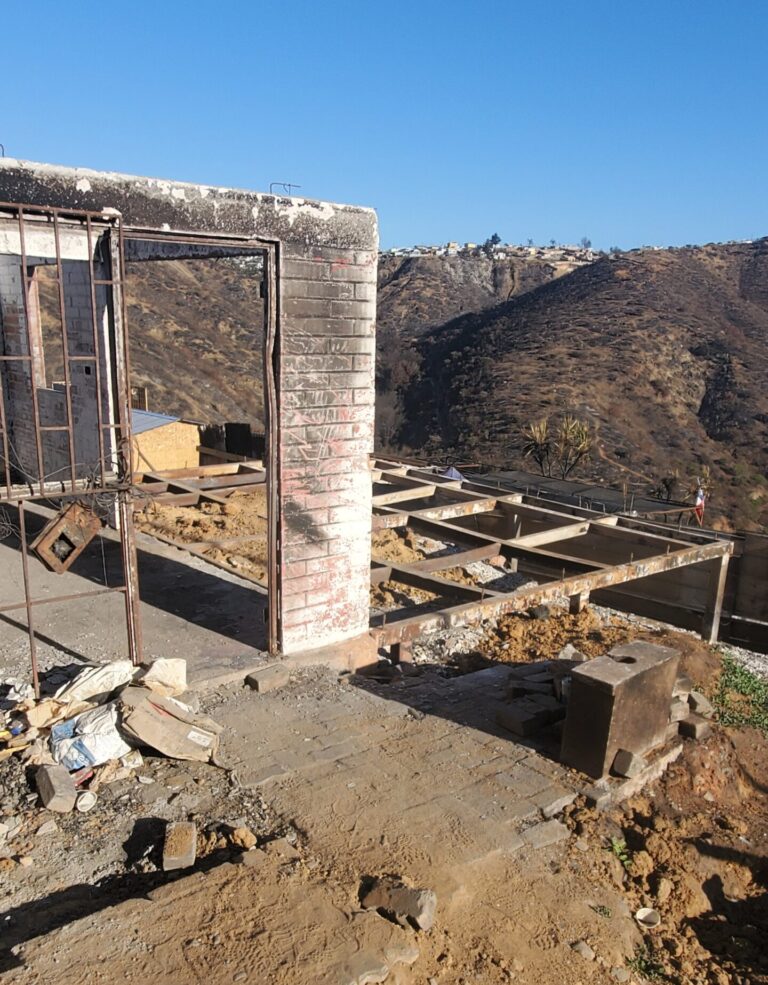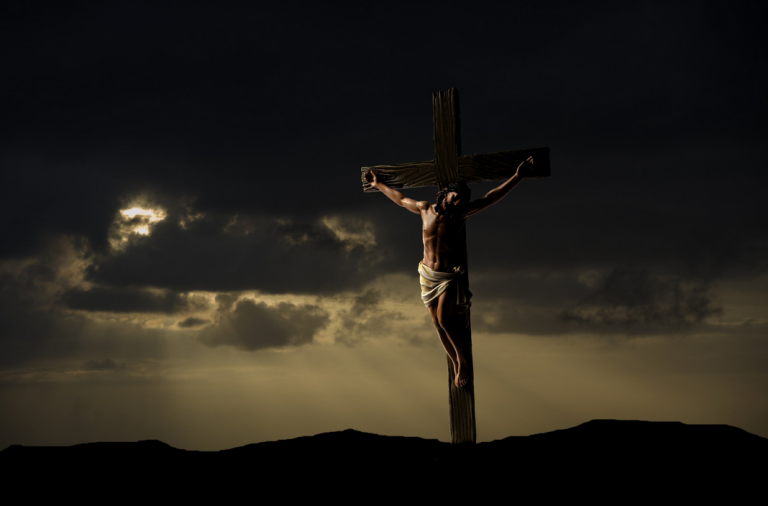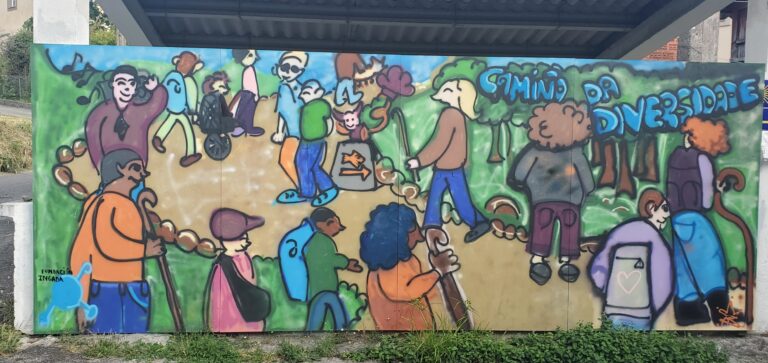Devotional Day 26
Come now, you rich people, weep and howl for your miseries which are coming upon you. Your riches have rotted and your garments have become moth-eaten. Your gold and your silver have corroded, and their corrosion will serve as a testimony against you and will consume your flesh like fire. It is in the last days that you have stored up your treasure! Behold, the pay of the laborers who mowed your fields, and which has been withheld by you, cries out against you; and the outcry of those who did the harvesting has reached the ears of the Lord of armies. You have lived for pleasure on the earth and lived luxuriously; you have fattened your hearts in a day of slaughter. You have condemned and put to death the righteous person; he offers you no resistance. Therefore be patient, brothers and sisters, until the coming of the Lord.
James 5: 1-7
“Come now, you rich people…”
By the time I reached this passage in James, we were in Burundi, our next stop after El Camino. Ironically here, in the poorest country in the world, the words about the rich seemed unfortunately applicable. We heard story after story of bishops and others high in church authority manipulating their followers, misusing their disproportionate power, and living luxuriously while the rural parishioners were starving. Many of the church systems there function like a government, focused on control instead of service. People become pastors for the sake of money and power instead of calling. Bishops surrounded themselves with the uneducated so that no one would question their authority or challenge their theology. (I don’t think anyone pointed out this passage!)
Meanwhile, church members in rural areas were lacking in food because the drought had dried up their maize plants. Their children had no school to attend. “Church projects” were only supported if they would somehow bring in money (perhaps foreign donations).
What is most sickening to me is the way these patterns are pervasive within the church. Too many powerful leaders are wolves in sheep’s clothing. Have they never read, or conveniently forgotten, this passage and similar ones? No matter how much they enjoy their worldly pleasures, they will be called to account with eternal repercussions. Woe to them.
Therefore…
Yet I don’t think this passage was written with the expectation that these powerful extortionists would read it. Because it is followed by “Therefore,” it seems to be more directed toward those who are enduring the abuse and injustice described. They are being reassured that these powerful people will be judged, for the people’s cries have been heard by God. They are not forgotten.
In the West, the deeds James describes sound criminal and practical laws are passed to prevent it; there are clear consequences. But much injustice still exists, sometimes more subtly than the blatant corruption in many low-income countries. Inequality is still real. Disasters have shown how the poor are hit the hardest and receive the least help. During COVID-19 it was the minorities who had the highest death rates, with more exposure and less available treatment.
We see poor neighborhoods destroyed for the construction of freeways, splintering communities. We hear of “illegal immigrants” who had fled their countries to escape violence or upheaval, now being paid below minimum wage with no insurance or other benefits; there is no way to stand up for their rights without fear of deportation. Over and over the most vulnerable are the ones facing extortions, human trafficking, and many forms of abuse, usually orchestrated by those who already hold power and wealth.
The Role of Believers
What is the role of the church, the Body of Christ, in this context? Are we not called to help one another, bear each other’s burdens, stand for justice, and uphold righteousness? It’s easier, more comfortable, to overlook what makes us uncomfortable. We complain about rates of homelessness instead of volunteering in a soup kitchen. It’s easy to condemn abortion, but we fail to invest in the lives of at-risk youth for prevention, or support crisis pregnancy centers to offer an alternative. We oppose welcoming refugees for the sake of the national budget, when specifically told in Scripture to care for foreigners and strangers. Something is wrong here.
This passage is a needed call to re-evaluate how we as individuals and as a broader church body are dealing with practical and political issues. May we who enjoy comfort and privilege (most of us to some degree) carefully ask ourselves if we are following Biblical standards of defending the helpless, caring for the poor, the widows (or single parents), the orphans (or foster kids), the refugees, and displaced people. May those struggling with poverty and abuse be comforted that God has heard their cries. There remains a promise for deliverance. Hopefully, the Body of Christ will help fulfill that promise in the immediate future. Ultimately the eternal outcomes are what are most important, most impactful on an everlasting scale.
Questioning Cathedrals

Along the El Camino we saw numerous churches and cathedrals, varying widely in size and majesty. I found myself having mixed feelings, appreciating the beauty in the architecture, the paintings and statues, the stained-glass windows, but also considering the cost and labor of their construction. Whose money was used? The commoner’s tithe? The philanthropist who could’ve been helping feed the poor with those funds? The ruler seeking honor and recognition?
In modern Spain and Portugal rates of poverty and starvation are miniscule compared to many parts of the world, but when these towering buildings were erected, life was different. Were the laborers paid fairly, enough to feed their families? I can’t say I know, but the resources needed for such constructions were enormous and I can’t help but wonder about the priorities of the benefactors.
Yet, already centuries have gone by where some of the churches have provided places to center on God, to bring both pain and thanksgiving, even if too often prayers were directed to saints instead of the Savior. Here I realize that I must be careful not to make myself the judge, particularly with my miniscule knowledge of the circumstances and non-existent insight into the hearts and minds of those sponsors. They have indeed left their mark, had their influence, for better or for worse.
Modern Ministry
Now it is my prayer that these buildings be used for good. In one enormous sanctuary I was struck by the evident effort being made to connect with the local community. There was a set of bookshelves with books free to borrow. Beside the ancient confession booths was an area called the “Sacred Oasis,” with an open table and chairs, a place to freely share struggles face-to-face with someone who cared. It was refreshing to see ministry in the here and now, not just historical monuments.
We know from James’ words that the wealthy will be held responsible for their actions by the Righteous Judge, and are not called to ourselves be judges of others. Not all who are wealthy are sucked into selfishness. We see many who have been blessed financially and take an active role to show love and grace to those currently in need, the oppressed, hurting, and struggling.
At same time, there is no minimum salary to participate in giving to those in need. While giving a small amount might seem insignificant compared to what the wealthy can contribute, giving is an act of worship. And what we give is not limited to money. All of us have been entrusted with numerous resources, including time, skills, talents, experience, and training. How we put them to use reflects our priorities. Imagine the growth of ministries in the church if our “tithe” included 10% of our time. If each member gave 4 hours a week (compared to the 40-hour work week), how many ways the Body of Christ could show love to the hurting people around us!
Prayer
Thank You, Lord, for the many resources You have given each one of us. Help us to use them wisely, prioritizing service of Your kingdom, what matters for eternity. Forgive us for the times we fail to acknowledge the needs of those around us, especially the vulnerable and the forgotten. Show us how to be vessels of Your love.
Reflective Response
- Look at the needs in the community around you. What resources do you have that could help others?
- Consider your use of “free” time. How much is spent looking at a screen? How much is given to service of others?
- Spend time with Jesus, inviting Him to show you His heart for the hurting and needy. Ask Him how He wants you to invest what you have been given.
Would you like to be notified about future posts? Subscribe here!





